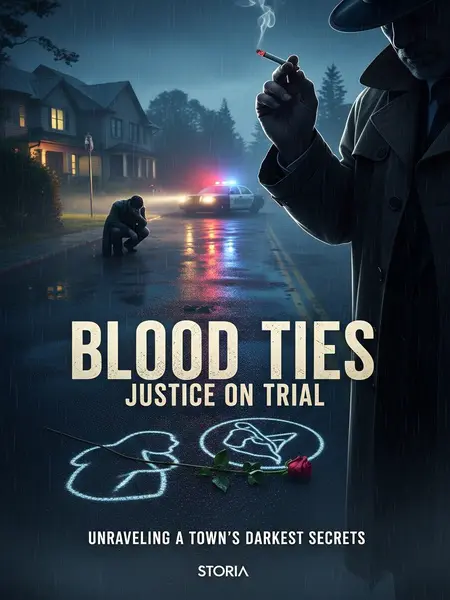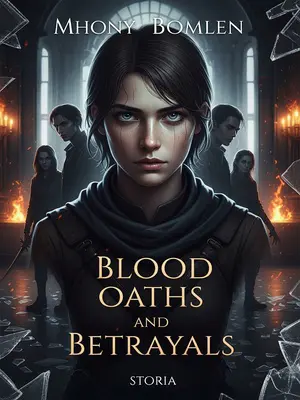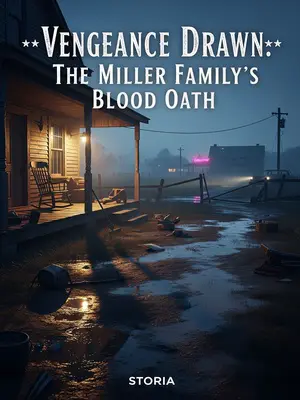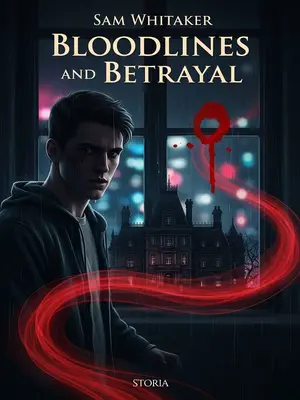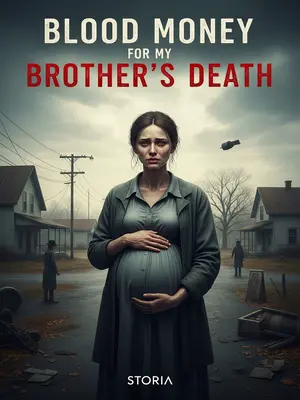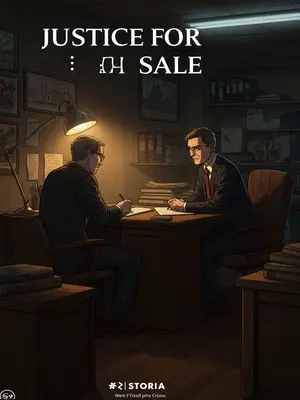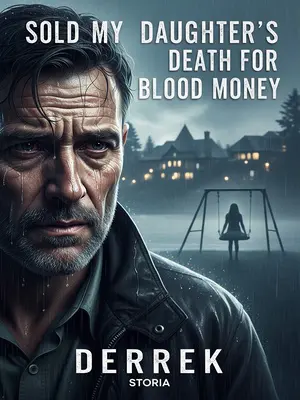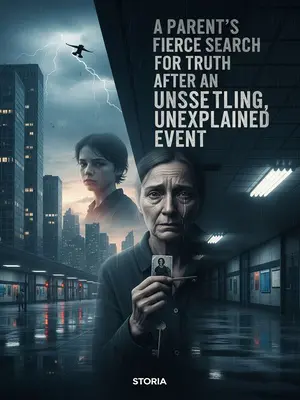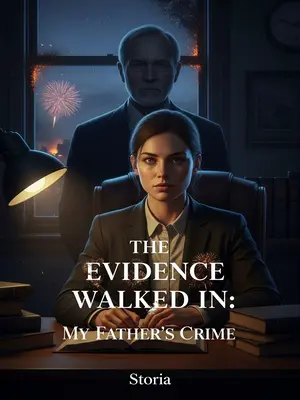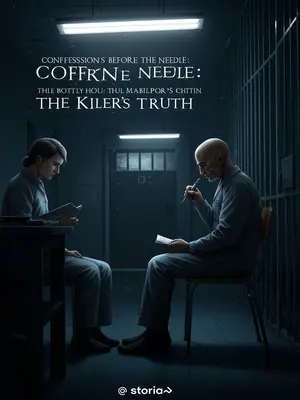Chapter 1: The Scene of Unspeakable Horror
In 2005, I worked on the worst crime I'd ever seen—a case so brutal I still can't wrap my head around it.
Back then, I’d already seen my share of ugly crime scenes, but nothing could’ve prepared me for this. The details still haunt me—sometimes they flash behind my eyelids at night, like they’re happening all over again. It was the sort of case that made even the most seasoned detectives question the world.
A young man broke into a home, assaulted and murdered a stay-at-home mother, then put her 11-month-old daughter in a trash bag and beat her to death by slamming her against the floor. I remember the shock hitting me like a punch to the gut, my mind struggling to process the horror as I stood there, heart pounding.
There are things you see as a cop that you never talk about at the dinner table. This was one of them. The cruelty was so raw, so senseless, it felt almost impossible to process. I remember standing in that hallway, fists clenched, jaw tight, just trying to breathe through the shock.
The infant’s delicate body was covered in bruises and welts, her limbs twisted, her head so badly deformed she was barely recognizable as human. Even the medical examiner wept at the sight.
You don’t see that every day—a seasoned ME breaking down in tears, glasses fogging up as he tried to steady his hands. The room was silent, except for the occasional sob and the distant wail of a siren outside. No one spoke. There was nothing to say.
The family’s only hope was that the killer would pay with his life.
It was the only thing left to hold onto. In a small town like ours, folks still believed in justice, in the idea that some lines just can’t be crossed without consequence. For Michael Grady, the husband and father, it was all he had left.
The call came in that evening—the worst kind of call. The scene was a typical county apartment building—two units per floor, with stairs leading up to each floor.
The place was quiet when we arrived, just the hum of a TV in a neighboring unit and the distant thump of footsteps on the stairs. The building smelled faintly of old carpet and last night’s takeout—maybe pizza boxes or leftover Chinese food. The kind of place where families start out, hoping for better someday.
The husband, Michael Grady, was inconsolable. He was wailing and sobbing at the scene, nearly collapsing from grief.
He clung to the doorframe. His knuckles were white, his face blotchy and wet. When the paramedics tried to help him, he pushed them away, shaking, mumbling Lillian’s name over and over like a prayer he wished someone would answer.
The victims were his wife and daughter: his 25-year-old wife, Lillian Grady, and their daughter, Savannah, who was not yet a year old.
The Grady family had been the picture of young hope—two college sweethearts making a life together, their baby girl just learning to stand on her own. Now, everything was shattered in a single, brutal evening.
A once happy family was thrown into utter despair by what that monster did.
There was a heaviness in the air, the kind that makes your chest ache. Even the officers who’d seen plenty of bad things kept glancing away, eyes wet, jaws set.
We got to work right away, even though our hands were shaking. Lillian’s body lay disheveled on the bed in the master bedroom. From the bruises on her neck, we could preliminarily determine she had been strangled.
Her hair was fanned out on the pillow. Her nightgown was twisted. The room smelled faintly of her perfume, a sweet, powdery scent that lingered beneath the copper tang of blood. The bruises on her neck were stark, ugly against her pale skin.
Her forehead, cheeks, and mouth were all marked with injuries—clear evidence of a violent assault and severe beating.
The brutality was almost surgical in its precision, but the rage behind it was unmistakable. There were handprints on her arms, a split lip, a trail of blood on the bedsheet. It was a tableau of violence that made my stomach turn.
It turned my stomach.
I remember closing my eyes for a second, just to steady myself. I’d seen a lot, but this—this was something else. You could feel the violence lingering in the air, as if it hadn’t yet dissipated.
But what we found in the baby’s room was even worse.
The nursery was painted a soft yellow, with pastel animal decals peeling slightly at the edges. Stuffed animals lined the crib, and a mobile spun lazily overhead, oblivious to the horror below. The air was thick, stifling, as if the room itself mourned.
A black trash bag lay in the corner, already torn open with blood seeping out onto the carpet.
The sight of that bag—ordinary, mundane—turned into something monstrous. The blood had soaked into the pale carpet, spreading like a dark shadow. I could see my own reflection in the glossy plastic, warped and distorted.
The father had already removed his daughter’s body from the bag and gently placed her in her crib, as if she were just sleeping.
Michael had arranged her carefully, tucking her favorite blanket around her tiny body. He’d even placed her pacifier beside her, as if hoping she’d wake up and reach for it. His hands shook so badly he could barely stand.
She was only eleven months old, her body still so soft, the way babies are, with a hint of baby fat.
Her cheeks were round, her hair wispy and fine. There was a faint trace of baby lotion on her skin, a memory of better days. Looking at her, it was impossible not to think of your own children, your own family.
Yet these very features made her injuries all the more shocking after such violence.
The contrast was unbearable—a body meant for cuddles and lullabies, brutalized beyond recognition. Even the most hardened officers wiped their eyes and turned away.
Her body was covered in bruises and blood; there wasn’t a single patch of unmarked skin.
Every limb, every inch of her, was marred by violence. The pattern of bruises told its own story—a story no one should ever have to hear.
There was a wound at the back of her head, blood oozing out—looked like she'd hit the sharp corner of the door.
A jagged edge on the doorframe was smeared with blood and hair. The wound pulsed slowly, as if her body was still trying to fight for life even after everything.
Her face was completely disfigured, partly from the distortion of crying, but mostly from being slammed face-down onto the floor.
Her tiny lips were swollen, her nose bent at an unnatural angle. The tears that had dried on her cheeks glistened in the harsh light. It was a sight that would haunt anyone who saw it.
Her neck was broken. When the medical examiner gently lifted her, her head flopped back, way too far.
